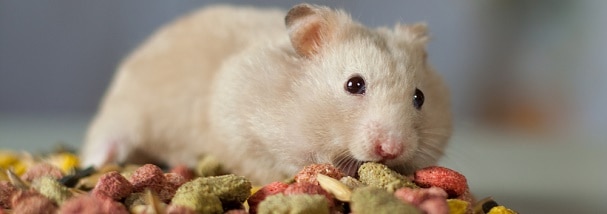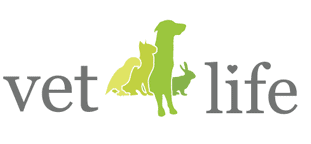 What to feed your hamster
What to feed your hamster
Generally a good commercial hamster mix feed should meet your hamster's nutritional needs. Small amounts of fresh fruit and vegetables, such as apples, carrot, broccoli, pear and cabbage can be given, but ensure that these have been thoroughly washed to remove any contamination prior to feeding. In the wild, hamsters are omnivores so will also eat insects - these can be given occasionally in small quantities, and you can also give unseasoned cooked chicken.
Feeding your hamster twice a day should be sufficient. Food can either be placed in flat dishes, such as ceramic bowls, as these are difficult for them to tip over, or scattered on the cage floor to allow for natural foraging behaviour and environmental enrichment. Be sure to remove any stale or uneaten food from the cage to prevent tummy upsets and hoarding by the hamster.
Treats such as sunflower seeds and peanuts should not be fed on a regular basis as these are high in fat and could lead to obesity. This is also the case for treats such as ‘honey sticks’ which are sugar-based.
If you are changing over your hamster's diet or adding any new food in, this should be done gradually as sudden diet changes can cause digestive upsets.
Fresh water should always be available to your hamster either via a water bottle with metal spout or a water bowl. If using a water bowl, ensure that this is a heavy one such as a ceramic dish to prevent tipping over.
Foods to avoid
- Avoid giving any citrus fruit as these are too acidic for your hamster
- Grapes and rhubarb should not be fed as these are poisonous to rodents
- Any food that is abrasive or sharp due to hamsters' storing food in their cheek pouches
If you notice any changes in your hamster's food or fluid intake, contact your veterinary practice for further advice.


